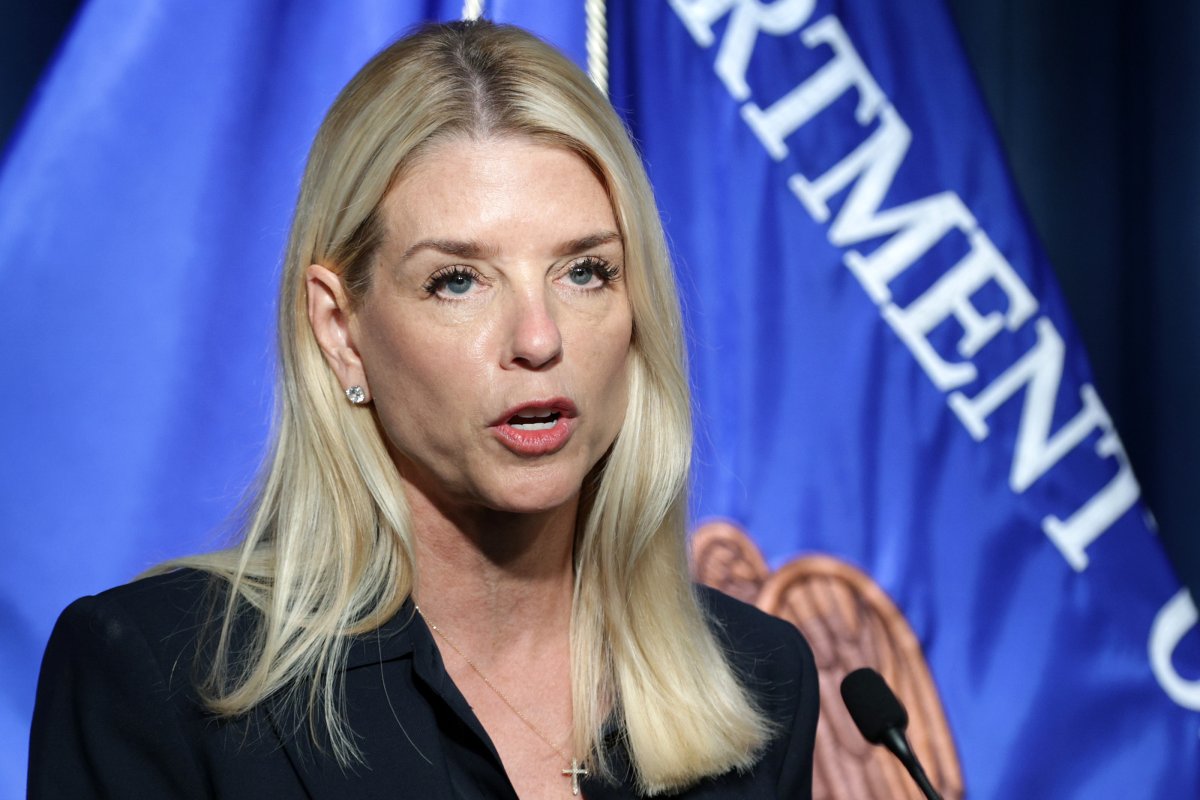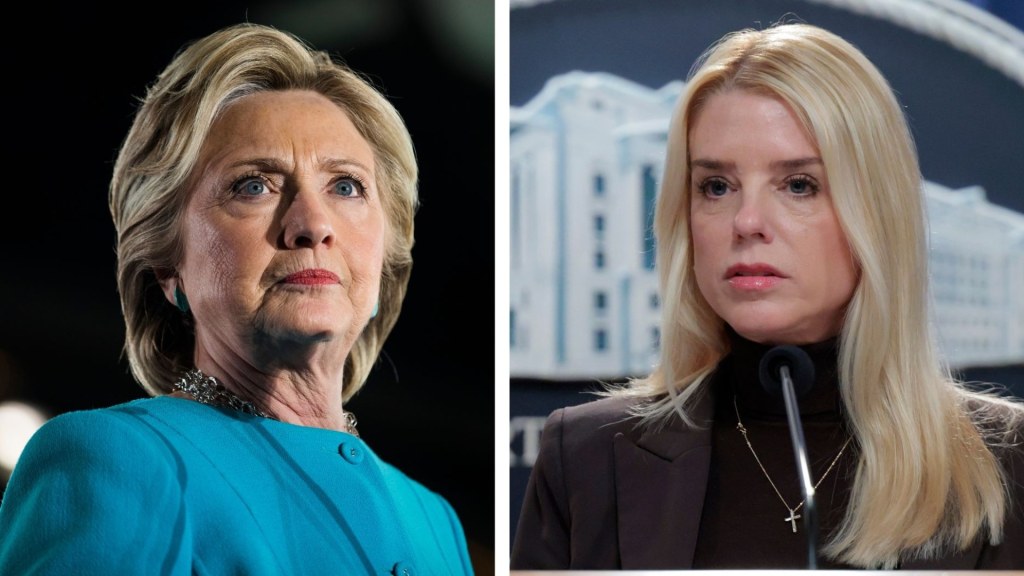
Pam Bondi greenlights the release of Hillary Clinton’s emails, praising Senate Judiciary Chair Chuck Grassley’s push for transparency

Pam Bondi’s Release of Clinton Emails Unearths a Cryptic Message Shaking Washington
In a seismic development that has reignited one of America’s most polarizing political controversies, Attorney General Pam Bondi has greenlit the release of long-classified documents tied to Hillary Clinton’s private email server, used during her time as Secretary of State from 2009 to 2013. Announced on July 21, 2025, the decision aligns with Senate Judiciary Committee Chairman Chuck Grassley’s relentless push for transparency, a cause he has championed since 2016. Bondi lauded Grassley’s “dogged pursuit of truth,” emphasizing the Department of Justice’s commitment to public accountability. Yet, while the declassification of these documents—particularly a previously unreleased appendix dubbed the “Clinton Annex”—has shed new light on past investigative failures, it is a single, cryptic email buried within the trove that has sent shockwaves through Washington, raising fresh questions and fueling intense speculation.
The Clinton Annex, an addendum to the Justice Department’s 2018 Inspector General report, exposes significant shortcomings in the FBI’s handling of the Clinton email investigation under former Director James Comey. The report details how the FBI failed to fully analyze critical evidence, including thumb drives containing sensitive government communications, some reportedly involving then-President Barack Obama. Grassley, in a fiery statement, called the FBI’s efforts “grossly inadequate,” criticizing Comey, former Deputy Director Andrew McCabe, and ex-FBI Agent Peter Strzok for neglecting key evidence. This revelation has reignited debates over whether political bias influenced the FBI’s 2016 decision to clear Clinton of criminal charges, a move Comey announced before even interviewing her, raising eyebrows about the investigation’s integrity.

While the annex’s findings have sparked outrage, it is a newly uncovered email that has stolen the spotlight. The email, with its sender and recipient still under review for declassification, contains a vague yet provocative reference to a “sensitive operation” involving foreign actors and a senior State Department figure. Dated during Clinton’s tenure, the message hints at coordinated efforts to shield certain activities from public view, though its exact nature remains unclear. Political analysts and lawmakers are now dissecting its potential implications, with some suggesting it could point to undisclosed diplomatic deals or even attempts to influence the 2016 election. The email’s ambiguity has unleashed a torrent of theories, from credible concerns about national security to wild conspiracies circulating online.
Grassley, who has fought for these documents’ release since 2018, praised Bondi and FBI Director Kash Patel for their commitment to openness. “The American people deserve to know the truth, no matter how long it takes,” he declared, calling for further probes into the national security risks posed by the FBI’s lapses. Bondi echoed his resolve, framing the release as a step toward restoring trust in federal institutions. However, skeptics question the timing, noting that Bondi’s decision coincides with scrutiny over her handling of other high-profile cases, including those tied to Jeffrey Epstein. Critics argue the move could be a calculated distraction, dismissing it as “partisan posturing” designed to rehash old controversies.

The resurfacing of Clinton’s email saga, now amplified by this mysterious message, has deepened Washington’s partisan divide. Republicans are seizing on the email as evidence of potential misconduct, demanding renewed investigations, while Democrats decry the release as a political stunt irrelevant to current priorities. The email’s cryptic content ensures it will remain a lightning rod for debate, with its true significance still shrouded in uncertainty. As Washington grapples with this unexpected twist, the Clinton email controversy—once thought relegated to history—proves its enduring power to captivate, divide, and unsettle the political landscape, reminding us that some scandals never truly fade.
Pam Bondi’s Release of Clinton Emails Unearths a Cryptic Message Shaking Washington
In a seismic development that has reignited one of America’s most polarizing political controversies, Attorney General Pam Bondi has greenlit the release of long-classified documents tied to Hillary Clinton’s private email server, used during her time as Secretary of State from 2009 to 2013. Announced on July 21, 2025, the decision aligns with Senate Judiciary Committee Chairman Chuck Grassley’s relentless push for transparency, a cause he has championed since 2016. Bondi lauded Grassley’s “dogged pursuit of truth,” emphasizing the Department of Justice’s commitment to public accountability. Yet, while the declassification of these documents—particularly a previously unreleased appendix dubbed the “Clinton Annex”—has shed new light on past investigative failures, it is a single, cryptic email buried within the trove that has sent shockwaves through Washington, raising fresh questions and fueling intense speculation.
The Clinton Annex, an addendum to the Justice Department’s 2018 Inspector General report, exposes significant shortcomings in the FBI’s handling of the Clinton email investigation under former Director James Comey. The report details how the FBI failed to fully analyze critical evidence, including thumb drives containing sensitive government communications, some reportedly involving then-President Barack Obama. Grassley, in a fiery statement, called the FBI’s efforts “grossly inadequate,” criticizing Comey, former Deputy Director Andrew McCabe, and ex-FBI Agent Peter Strzok for neglecting key evidence. This revelation has reignited debates over whether political bias influenced the FBI’s 2016 decision to clear Clinton of criminal charges, a move Comey announced before even interviewing her, raising eyebrows about the investigation’s integrity.

While the annex’s findings have sparked outrage, it is a newly uncovered email that has stolen the spotlight. The email, with its sender and recipient still under review for declassification, contains a vague yet provocative reference to a “sensitive operation” involving foreign actors and a senior State Department figure. Dated during Clinton’s tenure, the message hints at coordinated efforts to shield certain activities from public view, though its exact nature remains unclear. Political analysts and lawmakers are now dissecting its potential implications, with some suggesting it could point to undisclosed diplomatic deals or even attempts to influence the 2016 election. The email’s ambiguity has unleashed a torrent of theories, from credible concerns about national security to wild conspiracies circulating online.
Grassley, who has fought for these documents’ release since 2018, praised Bondi and FBI Director Kash Patel for their commitment to openness. “The American people deserve to know the truth, no matter how long it takes,” he declared, calling for further probes into the national security risks posed by the FBI’s lapses. Bondi echoed his resolve, framing the release as a step toward restoring trust in federal institutions. However, skeptics question the timing, noting that Bondi’s decision coincides with scrutiny over her handling of other high-profile cases, including those tied to Jeffrey Epstein. Critics argue the move could be a calculated distraction, dismissing it as “partisan posturing” designed to rehash old controversies.

The resurfacing of Clinton’s email saga, now amplified by this mysterious message, has deepened Washington’s partisan divide. Republicans are seizing on the email as evidence of potential misconduct, demanding renewed investigations, while Democrats decry the release as a political stunt irrelevant to current priorities. The email’s cryptic content ensures it will remain a lightning rod for debate, with its true significance still shrouded in uncertainty. As Washington grapples with this unexpected twist, the Clinton email controversy—once thought relegated to history—proves its enduring power to captivate, divide, and unsettle the political landscape, reminding us that some scandals never truly fade.